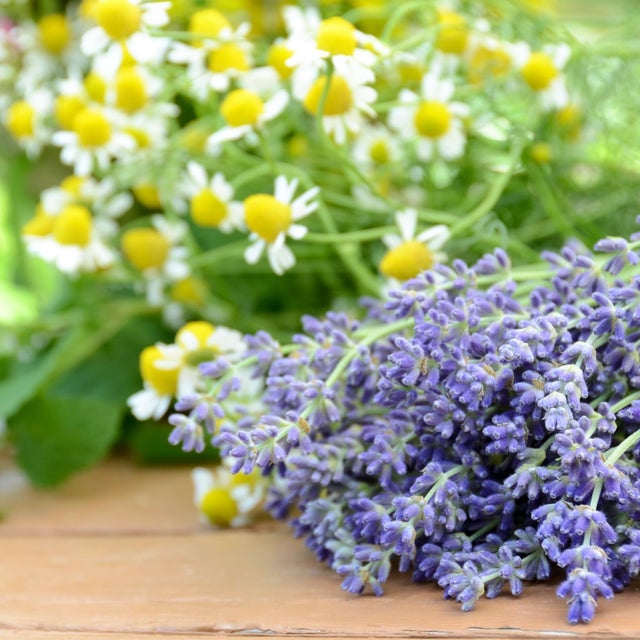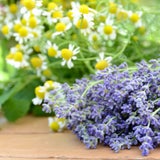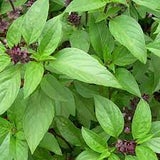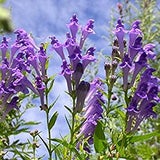- Herbal Teas
- >
- Calming Herbal Teas - Individual Herbs
Calming Herbal Teas - Individual Herbs
Choose from Lavender, Chamomile, Skullcap, & Egyptian Basil.
All herbs arrive in 3oz air sealed package with a description of their herbal and medicinal properties. Proceeds go directly to Seeding Reciprocity the 501c3 Regenerative Organic Farm where they are grown.
Lavender Herbs for Tea: Lavandula angustifolia is the classic lavender that most people are familiar with. It can also be found on the market as Common Lavender, French Lavender (when it comes from France), True Lavender, or Lavender. You may also see it labeled as Lavandula officinalis. This little greyish purple flower is known for its sweet floral aroma. The genus Lavandula is in the mint family.
As a spice, lavender is best known as an important aspect of French cuisine and is an integral ingredient in herbs de Provence seasoning blends. Lavender may be used on its own to give a delightful, floral flavor to desserts, meats, and breads. The flowers can also be layered within sugar to infuse it with its distinctive aroma for use in cookies and candies.
Lavender has been thought for centuries to arouse passions as an aphrodisiac and is still one of the most recognized scents in the world.
Chamomile Herbs for Tea: Matricaria chamomilla is a well-known blossom in the herbal world and is renowned for its gentle actions. German chamomile is most often prepared as an infusion of chamomile tea, and the flowers are widely used in hair and skin care recipes. Chamomile promotes relaxation and supports digestive health.
Chamomile was used in ancient Egypt and was given as an offering to their gods. Chamomile has been utilized extensively in Europe as somewhat of a panacea which supported digestive health. Common preparations were teas, baths and sitzbaths, gargles, inhalations, and compresses. Germans refer to this herb as alles zutraut meaning 'capable of anything.' Matricaria chamomilla and Chamaemelum nobile are similar and have been traditionally used interchangeably to some degree, although differences in taste and action have been noted. In the Mexican folkloric tradition, manzanilla was used to support healthy respiratory function and for soothing the stomach and easing digestion. In the highlands of southern Mexico, the Tzeltal Maya make a chamomile tea containing an orange and a lime leaf to lift the mood.
Skullcap Herbs for Tea: Skullcap herb has been known to instill a sense of gentle calm. Historically, it has been used in traditional folk practices to promote wellbeing and relaxation during times of occasional distress. Scutellaria lateriflora makes a wonderful evening infusion of skullcap tea and is commonly macerated as skullcap tincture.
The two-lobed flowers resemble the military helmets worn by early European settlers, hence the herb's name. Settlers in North America the late 1700's promoted the herb's effectiveness as a cure for rabies, giving rise to one of its common names, mad dog weed. This claim was later discarded, and herbalists began to focus on the plant's considerable value. Skullcap is a comforting herb. It is used to promote emotional well-being and relaxation during times of occasional distress.
Egyptian Basil Herbs for Tea: Egyptian Basil is a very ancient plant much appreciated by Egyptians and is considered a holy plant in India. More here soon :)




